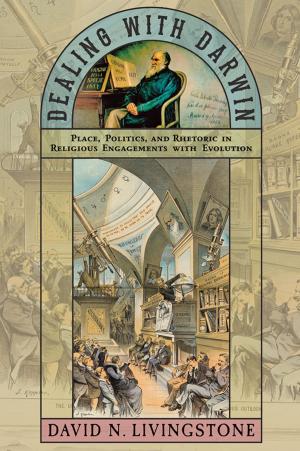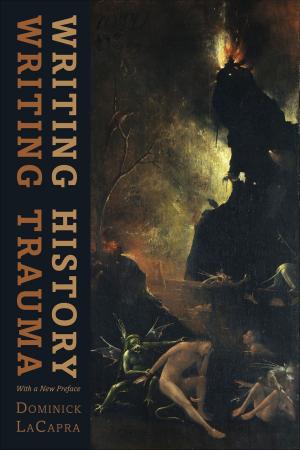F. Scott Fitzgerald’s Fiction
"An Almost Theatrical Innocence"
Fiction & Literature, Literary Theory & Criticism, American, Theory| Author: | John T. Irwin | ISBN: | 9781421412313 |
| Publisher: | Johns Hopkins University Press | Publication: | March 28, 2014 |
| Imprint: | Language: | English |
| Author: | John T. Irwin |
| ISBN: | 9781421412313 |
| Publisher: | Johns Hopkins University Press |
| Publication: | March 28, 2014 |
| Imprint: | |
| Language: | English |
"Fitzgerald’s work has always deeply moved me," writes John T. Irwin. "And this is as true now as it was fifty years ago when I first picked up The Great Gatsby. I can still remember the occasions when I first read each of his novels; remember the time, place, and mood of those early readings, as well as the way each work seemed to speak to something going on in my life at that moment. Because the things that interested Fitzgerald were the things that interested me and because there seemed to be so many similarities in our backgrounds, his work always possessed for me a special, personal authority; it became a form of wisdom, a way of knowing the world, its types, its classes, its individuals."
In his personal tribute to Fitzgerald's novels and short stories, Irwin offers an intricate vision of one of the most important writers in the American canon. The third in Irwin's trilogy of works on American writers, F. Scott Fitzgerald’s Fiction resonates back through all of his previous writings, both scholarly and poetic, returning to Fitzgerald's ongoing theme of the twentieth-century American protagonist's conflict between his work and his personal life. This conflict is played out against the typically American imaginative activity of self-creation, an activity that involves a degree of theatrical ability on the protagonist's part as he must first enact the role imagined for himself, which is to say, the self he means to invent.
The work is suffused with elements of both Fitzgerald's and Irwin's biographies, and Irwin's immense erudition is on display throughout. Irwin seamlessly ties together details from Fitzgerald's life with elements from his entire body of work and considers central themes connected to wealth, class, work, love, jazz, acceptance, family, disillusionment, and life as theatrical performance.
"Fitzgerald’s work has always deeply moved me," writes John T. Irwin. "And this is as true now as it was fifty years ago when I first picked up The Great Gatsby. I can still remember the occasions when I first read each of his novels; remember the time, place, and mood of those early readings, as well as the way each work seemed to speak to something going on in my life at that moment. Because the things that interested Fitzgerald were the things that interested me and because there seemed to be so many similarities in our backgrounds, his work always possessed for me a special, personal authority; it became a form of wisdom, a way of knowing the world, its types, its classes, its individuals."
In his personal tribute to Fitzgerald's novels and short stories, Irwin offers an intricate vision of one of the most important writers in the American canon. The third in Irwin's trilogy of works on American writers, F. Scott Fitzgerald’s Fiction resonates back through all of his previous writings, both scholarly and poetic, returning to Fitzgerald's ongoing theme of the twentieth-century American protagonist's conflict between his work and his personal life. This conflict is played out against the typically American imaginative activity of self-creation, an activity that involves a degree of theatrical ability on the protagonist's part as he must first enact the role imagined for himself, which is to say, the self he means to invent.
The work is suffused with elements of both Fitzgerald's and Irwin's biographies, and Irwin's immense erudition is on display throughout. Irwin seamlessly ties together details from Fitzgerald's life with elements from his entire body of work and considers central themes connected to wealth, class, work, love, jazz, acceptance, family, disillusionment, and life as theatrical performance.















